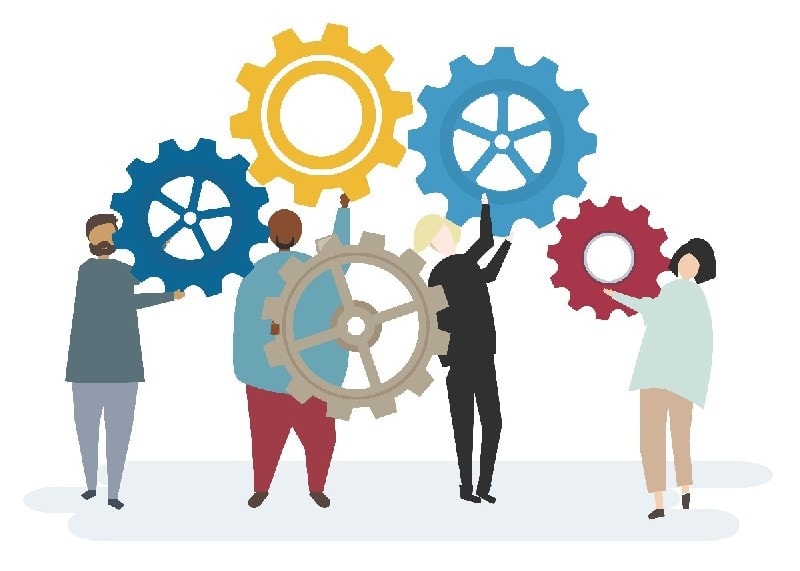
Why Effective Decision Making is Crucial for Business Success

Effective decision making is crucial for success in any organization It involves analyzing options, selecting the best course of action, and achieving objectives efficiently It also helps in utilizing resources effectively, motivating employees, dealing with problems, and executing managerial functions Ultimately, it leads to growth and diversification, increasing efficiency, and selecting the best alternative
The ability to make decisions involves analyzing available options and selecting the most effective course of action to complete a given task. This skill is essential in both personal and professional settings as the decisions made can have a defining impact on the outcome. While not inherent, it is a skill that can be acquired and is highly sought after in the professional world as it enhances leadership qualities and makes individuals eligible for leadership roles. Employers view strong decision-making skills as a hallmark of a good leader. This involves a thoughtful process of weighing the pros and cons of options, considering the potential outcomes, and taking prompt action to avoid chaos.
Effective decision-making involves the integration of both intuition and logic to arrive at a solution that is beneficial for all parties involved. The ideal decision-maker possesses an open-minded attitude, is a good listener, and has a realistic understanding of priorities. Additionally, they are able to remain adaptable in response to changing circumstances. In order to ensure the success of a project or task, it is important that strategic decisions are made with efficiency and productivity in mind. This requires someone who is capable of making informed decisions after carefully considering all relevant information and potential outcomes.
The key to making sound decisions is to approach problems with a logical and thoughtful mindset, free from emotional bias. By integrating different perspectives, you can gain a comprehensive understanding of the situation and view it from multiple angles. A skilled decision-maker remains calm in the midst of chaos and avoids hasty, ill-advised choices that could have lasting consequences.
1. Importance of decision making in achieving objectives
In today's world, the ability to make sound decisions and choose the most favorable path is a highly sought-after skill. The demand for individuals with such qualities has increased, as organizations are actively seeking them for top-level positions. However, this is not a job for the faint-hearted, and educational background alone cannot guarantee success in decision-making. Rather, a combination of general knowledge, common sense, a healthy dose of reality, and a firmly entrenched value system are what produce the best decision-makers in the world.
Having effective decision-making skills is crucial for an organization to achieve its values, mission, goals, and objectives. Leaders in top positions must be able to efficiently allocate company resources, assess various options, and maintain a satisfied workforce. It is important to note that decision-makers play a vital role in establishing objectives and devising strategies to attain them. They must create and execute action plans with precision and timeliness.
2. Importance of decision making in the utilization of resources
A successful organization must effectively utilize its available resources to achieve its goals and objectives within a given timeframe. These resources can include human capital, equipment, materials, finances, operational processes, market reach, and valuable data and information. By avoiding waste and inefficiency, a company can thrive and achieve maximum output. Making timely and informed decisions is critical to minimizing costs and ensuring success. Failing to do so can result in disappointing outcomes. Therefore, it is essential to make use of the right resources at the right time when making decisions.
The ability of the decision-maker to thoroughly understand the task at hand, carefully evaluate available options, and approach problems in a manner that is optimal for the organization is crucial. When the decision-making process is effective, it can lead to the efficient use of both physical and human resources, resulting in increased productivity.
3. Importance of decision making in motivating employees
A crucial aspect of any organization is its human resources, which plays a key role in realizing its business objectives. A workforce that is content and motivated is an invaluable asset that enhances the efficiency of operations and elevates productivity levels. Effective decision-making is essential in any organization, as a strong leader can guide employees towards achieving common goals and ensure a smooth flow of operations.
This instills trust and confidence in the workforce, prompting them to work towards achieving company objectives. In times of crisis, the ability of the decision-maker to make the right choices has a profound impact on the mindset of employees, strengthening their trust in the management and its abilities.
Rational decisions along with benefits and facilities are offered in a timely manner, and this is the reason why the employees are motivated to give their best.
4. Importance of decision making in growth and diversification
Making effective decisions is crucial for the growth and expansion of any organization. In an ever-changing business environment, unpredictability is the norm, and managers must be prepared to make difficult decisions at any given moment. The decision-making process plays a key role in determining the success or failure of a business, and it is essential that managers are equipped with the necessary skills and knowledge to make informed decisions that benefit the organization as a whole.
In situations where not everyone can afford to make choices, the organization relies on experienced managerial positions to make tough decisions if the business environment requires it. The decision-maker must possess the necessary expertise to handle critical issues, as their knowledge and intuition will be crucial in saving the day.
When faced with critical situations such as mergers and acquisitions, the company brings in its top decision-makers to assess proposals and address most of the issues. Any change made will have a direct and indirect impact on the organization, altering the tone and structure of the business. Therefore, it is vital for the company, in collaboration with its top decision-makers, to consider all viable options.
5. Importance of decision making in dealing with problems
To effectively manage an organization, a decision-maker must possess the strength and conviction to stand by their choices, even in the face of opposition and criticism. Confidence and belief in one's abilities are paramount, as is the ability to carry out directives without fear of backlash. While challenges and setbacks are inevitable, having a strong leader at the helm ensures that tough decisions can be made in the best interest of the company.
6. Importance of decision making in the execution of managerial functions
When faced with challenging circumstances, one's ability to make sound decisions is crucial. By making difficult choices without delay, an individual can help their business not only survive but also thrive amidst crises and obstacles. This proactive approach can pave the way for sustainable growth and development, regardless of any issues or problems that may arise.
Effective management requires the ability to make sound decisions and ensure that they align with the organization's goals. The decision-making process impacts all aspects of management, including planning, organizing, directing, and controlling. Quick and well-informed decisions can be the key to success for any organization.
A leader who remains steadfast in the face of adversity and avoids indecisiveness earns the trust and respect of their team. This is crucial for achieving positive outcomes and success. The value of having a decision-maker in a key role is their ability to swiftly and intelligently make choices, saving time and promoting progress. When employees have confidence in their leader's abilities, it fosters a harmonious work environment that boosts productivity and drives organizational growth.
7. Importance of decision making in increasing efficiency
Being able to make sound decisions is a highly coveted skill in any organization, especially during times of uncertainty or turbulence. While some decisions may appear straightforward, others can be incredibly challenging, with the potential for disastrous outcomes if handled poorly. As a result, it's crucial to approach decision-making with care and thoughtfulness to mitigate any negative consequences.
Delaying decisions can be a common habit for some individuals, but it is crucial to recognize the impact it can have on a company's efficiency. To ensure optimal productivity, it is essential to set a time-frame for decision-making and stick to it. While it may be helpful to consider all factors before making a decision, repeatedly delaying it can ultimately harm both yourself and the organization. Making rational decisions in a timely manner is crucial for enhancing the effectiveness of the company and achieving its goals.
Efficiency in business refers to the ability to generate high returns while keeping costs relatively low. This can only be achieved through rational decision-making, which ultimately increases the effectiveness of a firm.
8. Importance of decision making in selecting the best alternative
Effective decision making is crucial for the smooth functioning of any organization. It is a responsibility that falls on the shoulders of every manager as it directly impacts business operations. In order to ensure that the pace of business activities is not hindered, managers must make quick decisions when faced with various issues. However, decision making is not always straightforward. Managers must analyze the available options and understand the reasons why one alternative is better than the others.
Despite the fact that there may be several solutions to a problem, the challenge lies in selecting the one that will benefit the company the most. Decision making is a critical process that enables individuals to choose the most suitable alternative from the various options available.
It depends upon the decision-maker to analyze all the options using numerous accounting and financial techniques and tools so that he can make the best decision for his company.


















